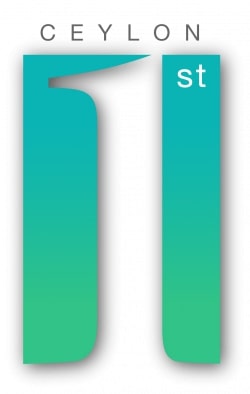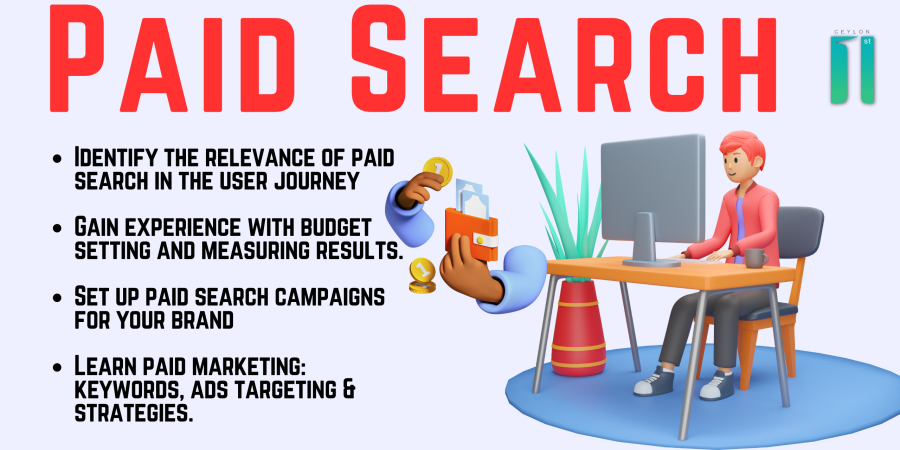Paid search is a type of online advertising where businesses pay to have their ads displayed when users search for specific keywords or phrases on search engines such as Google, Bing, or Yahoo. These ads typically appear at the top or bottom of the search results page and are marked as sponsored or paid results.
Paid search ads are created using an auction-based system, where advertisers bid on specific keywords that are relevant to their business. The cost per click (CPC) of a keyword is determined by the competition for that keyword and the maximum bid set by the advertiser. When a user clicks on an ad, the advertiser is charged the CPC.
Paid search can be an effective way for businesses to increase their online visibility and drive traffic to their website. It allows businesses to target specific keywords and demographics, as well as track their ad performance and adjust their campaigns accordingly. However, it can also be a costly and competitive advertising method, as businesses must continually optimise their campaigns to stay ahead of their competitors.
Identify the relevance of paid search in the user journey
Paid search can be relevant to the user journey in several ways. Here are a few examples:
- Discovery: Paid search can help users discover new products or services that they may not have known about otherwise. If a user searches for a specific keyword or phrase related to a business’s offerings, they may see a paid search ad that is relevant to their search query. This can help them become aware of a business that they may not have known about otherwise.
- Consideration: Paid search can also be relevant during the consideration phase of the user journey. For example, if a user is comparing different products or services, they may see paid search ads for multiple businesses offering similar offerings. This can help them compare and evaluate different options before making a decision.
- Conversion: Paid search can also be relevant during the conversion phase of the user journey. If a user has already decided to purchase a product or service, they may search for a specific business or product name. If the business has a paid search ad that appears at the top of the search results page, it can help the user quickly find the business’s website and make a purchase.
Overall, paid search can be relevant throughout the entire user journey by helping users discover new businesses, evaluate different options, and make a purchase decision.
Gain experience with budget setting and measuring results
General advice on budget setting and measuring results for paid search campaigns:
- Set a realistic budget: It’s important to set a budget that aligns with your business goals and resources. Consider factors such as your target audience, competition, and the cost per click for your keywords when setting your budget.
- Monitor your spending: Keep track of your spending and adjust your budget as needed. This can help you stay within your budget and avoid overspending.
- Set goals and metrics: Define your goals and metrics for your paid search campaign. This can include metrics such as click-through rate (CTR), conversion rate, and return on investment (ROI). Use these metrics to measure the effectiveness of your campaign and adjust your strategy accordingly.
- Test and optimise: Test different ad copy, keywords, and landing pages to see what works best for your campaign. Continuously optimise your campaign based on your results to improve your performance over time.
- Use analytics tools: Use analytics tools such as Google Analytics to track your campaign performance and gain insights into your audience and their behaviour. This can help you make informed decisions about your campaign strategy.
- Keep learning: Paid search is constantly evolving, so it’s important to stay up-to-date with the latest trends and best practices. Attend industry events, read blogs, and network with other professionals to stay informed and improve your skills.
Set up paid search campaigns for your brand
General steps to follow when setting up a paid search campaign:
- Define your campaign goals: Determine what you want to achieve with your paid search campaign. This can include goals such as increasing website traffic, generating leads, or driving sales.
- Identify your target audience: Identify the demographics and interests of your target audience. This can help you choose the right keywords, ad copy, and targeting options for your campaign.
- Conduct keyword research: Conduct keyword research to identify the relevant keywords that your target audience is searching for. Use tools such as Google Keyword Planner, SEMrush, or Ahrefs to find high-volume, relevant keywords with low competition.
- Create ad copy and landing pages: Create compelling ad copy that highlights the benefits of your product or service and includes a clear call-to-action. Also, create landing pages that are relevant to the ad copy and provide a clear path for users to take the desired action.
- Set up your campaign: Use a paid search platform such as Google Ads or Bing Ads to set up your campaign. Choose your targeting options, bid on your chosen keywords, and set a budget for your campaign.
- Launch and monitor your campaign: Launch your campaign and monitor its performance. Track metrics such as click-through rate, conversion rate, and cost-per-click to see how your campaign is performing. Use this data to adjust your strategy and optimise your campaign for better results.
- Continuously optimise your campaign: Continuously optimise your campaign based on your performance data. Test different ad copy, landing pages, and targeting options to see what works best for your audience.
Become familiar with paid marketing concepts including keyword research and ad targeting strategies
Paid marketing involves a number of important concepts, including keyword research and ad targeting strategies. Here’s an overview of these concepts:
Keyword research:
Keyword research is the process of identifying the relevant keywords and phrases that your target audience is using to search for products or services in your industry. The goal of keyword research is to find high-volume, relevant keywords that have low competition.
Some of the tools that can be used for keyword research include Google Keyword Planner, SEMrush, Ahrefs, and Moz Keyword Explorer. These tools can help you find the keywords that are most relevant to your business and that have the best potential for generating traffic and conversions.
Ad targeting strategies:
Ad targeting strategies involve selecting the right audience for your paid search ads. There are several ad targeting strategies that can be used to reach your desired audience, including:
- Demographic targeting: Targeting your ads to specific demographics, such as age, gender, and location.
- Interest targeting: Targeting your ads to people who have expressed interest in topics related to your business.
- Behavioural targeting: Targeting your ads to people based on their past behaviour, such as their search history or past purchases.
- Remarking: Targeting your ads to people who have already interacted with your brand, such as by visiting your website or adding items to their cart.
- Lookalike targeting: Targeting your ads to people who have similar characteristics to your existing customers, based on factors such as demographics or behaviour.
Overall, effective keyword research and ad targeting strategies are critical to the success of your paid marketing campaigns. By targeting the right audience with the right keywords, you can generate more traffic, leads, and conversions for your business.
CEYLON FIRST



Leave feedback about this